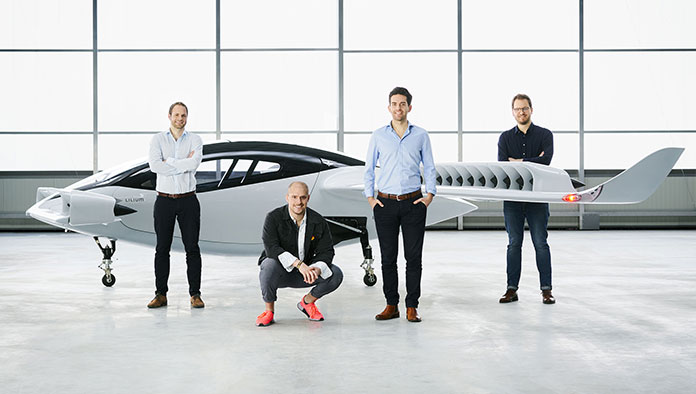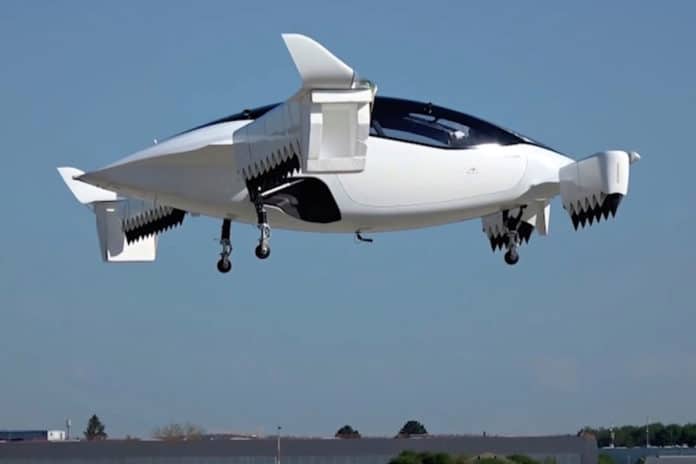A German air taxi startup has recently announced that its new Lilium Jet came as the all-electric aircraft had a successful maiden flight in the skies over Germany earlier this month. That means the company has taken another step towards its goal of launching an on-demand air taxi service.
Powered by 36 all-electric jet engines, the full-scale, full-weight prototype can take-off and land vertically, while achieving remarkably efficient horizontal, or cruise, flight. As the company describes, it has “no tail, no rudder, no propellers, no gearbox and only one moving part in the engine”. The absence of parts and its unique design not only reduce the weight of handicraft but also contribute to requiring less power to carry it.
Lilium claims its Lilium Jet has a top speed of 300 km/h (186 mph) and a range of 300km. That’s much farther than many of its competitors are predicting their electric aircraft. The all-electric vehicle will have zero operating emissions and its unique design would allow it to consume only 10% of its maximum 2,000 hp while cruising in the air.
Its limited components also allowed Lilium to provide more space in the passenger cabin, include panoramic windows, and use gull-wing doors. It will eventually be able to carry five passengers and a pilot, plus luggage.

The two-seater prototype
Back in 2017, Lilium announced the first test flight of its all-electric two-seater vertical take-off and landing (VTOL) prototype. The two-seater prototype, which was controlled remotely by a pilot on the ground, performed a successful vertical take-off and transition between hover mode and forward flight mode. Lilium then promised that it will next build a five-seater electric jet taxi. And now, the startup is proudly proclaiming that the promise it has given is now delivered- The five-seater version of his unique aerial taxi jet.
Both the Lilium jets are totally different from any VTOL vehicle you may have already seen.
“Moving from two to five seats was always our ambition as it enables us to open up the skies to many more travelers,” said Daniel Wiegand, co-founder, and CEO. “Whether its friends or families flying together or business travelers ride-sharing into the city, having five seats delivers an economy of scale you just can’t achieve with two.”
“The Lilium Jet itself is beautiful and we were thrilled to see it take to the skies for the first time. With the perfect balance of range and speed, our aircraft has the potential to positively impact the way people choose to live and travel, all over the world.”
The Lilium Jet will undergo a more rigorous flight test campaign in its bid to receive certification against commercial aircraft safety standards, according to Daniel Wiegand. Unlike some competitors, Lilium wants to keep a human pilot on board the aircraft to make it easier to obtain approval.
It expects to be fully operational “in various cities around the world by 2025,” with trial services starting even earlier. The company’s website even has a mockup of a Lilium app already, showing a number of destinations in the Northeast and Mid-Atlantic US.
